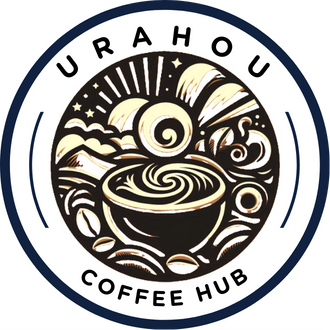Organic coffee might seem like a buzzword, but it matters. Essentially, organic coffee refers to beans grown without synthetic pesticides, herbicides, or fertilizers. This makes a huge difference in quality and health benefits.
Organic coffee certifications and standards can get a bit confusing. The most common certification is USDA Organic, but others like Fair Trade Certified and Rainforest Alliance exist. Each of these has specific criteria that farmers and producers must meet, to ensure the coffee is genuinely organic. Always look for these logos on the packaging to ensure you get the real deal.
The difference between organic and non-organic coffee goes beyond just being free of chemicals. Organic farming promotes biodiversity, improves soil health, and often produces tastier, richer beans. Basically, it’s good for your taste buds and the plane.
Choosing organic coffee has benefits beyond just taste. By opting for organic, you’re supporting sustainable farming practices, reducing chemical runoff into water supplies, and promoting a healthier ecosystem. It’s a win-win for everyone involved. Decoding Specialty Coffee Labels: Key Information to Look For
Specialty coffee can seem like a whole new world, but don’t worry—I’m here to break it down for you. Specialty coffee refers to the highest quality beans, carefully grown and processed to bring out the best flavors. These coffees are often given a score by certified tasters, with anything above 80 considered specialty.
When browsing through specialty coffee labels, key info to check out includes the origin, roast date, and tasting notes. The origin tells you where the beans were grown—this can give you insight into the flavor profile. For example, Ethiopian coffee often has fruity notes, whereas Colombian beans may be more chocolaty.
The roast date is crucial. The fresher is better, so look for beans roasted within the past couple of weeks. Unlike other food products, coffee loses its prime flavor quickly after roasting.
Another important piece of info is the tasting notes. These are usually descriptive words like ‘citrus,’ ‘nutty,’ or ‘floral’ that give you an idea of what the coffee will taste like. It’s a good way to find something that suits your palate.
Farm practices and processing methods also play a big role in specialty coffee. Labels might mention if the coffee is single-origin or a blend, if it was sun-dried or washed, and other tidbits. These details can affect the overall flavor and quality, so keep an eye out for them.
Identifying Truly Organic Coffee: Tips and Tricks
Spotting genuinely organic coffee can be tricky, but there are key signs to look out for. One of the best ways to tell if coffee is organic is to check for recognized certification logos. Labels like USDA Organic or Certified Organic by Quality Assurance International (QAI) are good indicators.
Transparency is another big factor. A trustworthy coffee brand will be clear about its sourcing and production processes. Look for detailed information on where the coffee comes from and how it’s been handled. Brands proud of their organic status usually love to share their story.
Many people assume that higher price tags equate to organic quality, but that’s not always the case. Price can be misleading, so lean on certifications and brand transparency instead of cost alone. Also, some local or smaller farms may be organic but can’t afford certification—buying from trusted local sources can sometimes get you genuine organic coffee.
Another tip is to be wary of ambiguous language. Terms like ‘natural’ or ‘pure’ aren’t regulated and can be slapped on almost anything. Stick to coffee that clearly states its organic status alongside certification.
Checking customer reviews can also be useful. Real experiences from other buyers can give you a grasp of the coffee’s quality and authenticity. But remember, take overly positive or negative reviews with a pinch of salt.
Maximizing Your Coffee Experience: Making an Informed Choice
Comparing the benefits of organic and specialty coffee helps you make the right pick for your needs. Organic coffee is all about being chemical-free and environmentally friendly, while specialty coffee focuses on exceptional quality and flavor. Knowing what matters most can guide you in choosing the right beans.
Your personal values play a significant role in coffee selection. If supporting sustainable farming practices and reducing your environmental footprint are top priorities, organic coffee might be your go-to. On the other hand, if you’re after the finest-tasting coffee with unique flavor profiles, specialty coffee is the way to go.
Sustainability and ethical considerations should be part of your decision-making process. Look for brands committed to fair labor practices, eco-friendly production methods, and transparent supply chains. Often, these brands not only provide great coffee but also positively impact communities and the environment.
Finding quality coffee from trusted sources requires a bit of research. Explore local coffee shops, attend coffee-tasting events, or join coffee subscription services that focus on high-quality, ethically sourced beans. Building relationships with local baristas or roasters can also offer insider tips on where to get the best beans.

